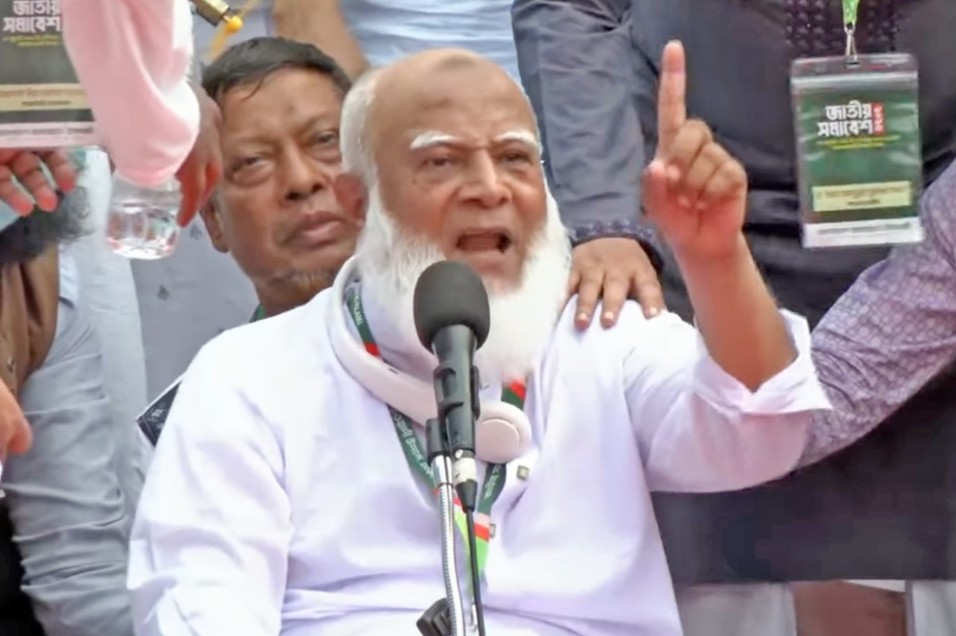Bangladesh Jamaat-e-Islami Ameer Shafiqur Rahman on Saturday said the country now faces a new battle against corruption, with the upcoming election set to be a decisive fight against both fascism and corruption in building a new Bangladesh.
“In the past, our struggle was against fascism and we won that battle. Now, in the Bangladesh of tomorrow, there will be another battle — against corruption,” he said while addressing a human sea at the historic Suhrawardy Udyan in the capital. “We will remain united in uprooting corruption.”
This is the first time Jamaat has held a rally at the historic ground where the Pakistan-led occupational forces surrendered to the allied forces on 16 December 1971.
Leaders of several other parties and organisations, including the National Citizen Party, Islami Andolan Bangladesh, Gono Odhikar Parishad, Khelafat Majlis, and Hefazat-e-Islam also joined the rally, organised by Jamaat.
They emphasised the need to forge strong unity among Islamic parties ahead of the next general election, as they believe a united front of Islamic parties could pose a significant challenge to any major political force in the next parliamentary election.
The Jamaat chief expressed confidence that the party would win the fight, saying, “We promise that if Jamaat comes to power, we will ensure the rights of farmers and workers. We will deliver justice for every massacre — Pilkhana, Shapla, and July. We owe a debt to those whose sacrifices gave us this new Bangladesh. As long as Jamaat exists, we will strive to repay that debt.”
He stressed that if his party forms the government, its leaders would serve the people as servants, not rulers. Outlining pledges for future lawmakers and ministers, he said, “They will not accept government plots, ride duty-free vehicles, or directly handle public funds.”
During his speech, which began at 5:00pm, Shafiqur collapsed twice due to illness but managed to complete his address while seated on stage.
The rally, marking a shift from Jamaat’s usual venues near Baitul Mukarram or Purana Paltan, centred on seven key demands, including justice for state-sponsored killings, proportional representation in elections, and a level-playing field for all parties.
Paying tribute to the martyrs of the July uprising, he said without the courage of people like Abu Sayed, today’s Bangladesh might not exist. “As long as I am alive, I will fight for the people. Our struggle will not end until the people of Bengal achieve their freedom,” he said.
Rejecting the existing political system, Shafiqur said, “This country can no longer run on a rotten, outdated framework. So many lives have been lost for freedom. If everything old remains, why did they die?”
Jamaat Secretary General Mia Golam Porwar said there is no alternative to unity among Islamists in building Bangladesh in line with the spirit of the mass uprising.
Expressing support for Jamaat’s seven-point demand, Islami Andolan Bangladesh Secretary General Yunus Ahmad said they are working towards building a new Bangladesh.
Jamaat Nayeb-e-Ameer Syed Abdullah Muhammad Taher criticised those opposing proportional representation in elections.
NCP Member Secretary Akhtar Hossain said, “To ensure a balance of power, elections for the upper house must follow the proportional representation system based on the ratio of votes. Those opposing this are deceiving the nation.”
Gono Odhikar Parishad President Nurul Haq Nur said the government must bring about a fundamental transformation in governance to honour the sacrifices made by students and the masses.


